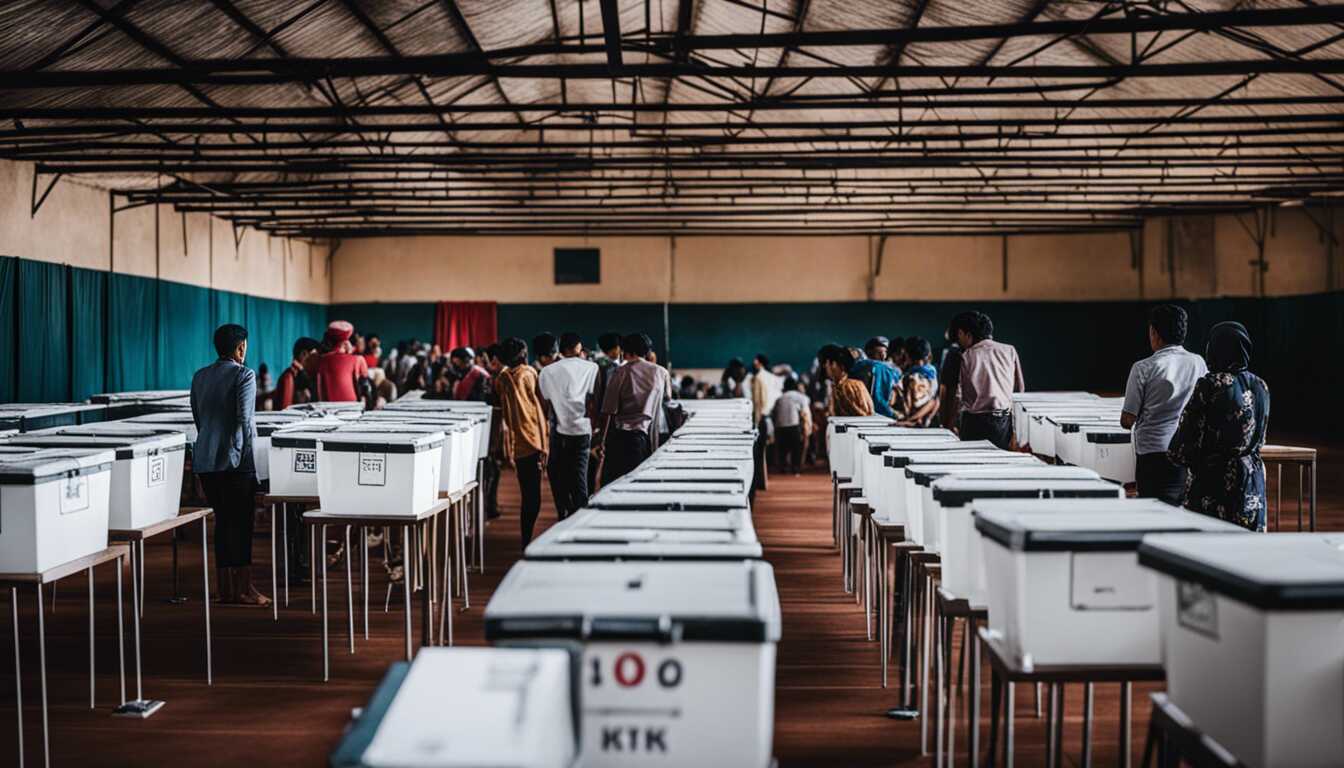
Indonesia's presidential election: millions head to the polls to choose Jokowi's successor

Indonesia is witnessing a pivotal moment as more than 200 million voters head to the polls across the nation's 800,000 polling stations to elect the country's next president. Defense Minister Prabowo Subianto, a former army general, is the frontrunner in the highly anticipated election, which could potentially shape the future of the world's most populous Muslim country.
Election dynamics and candidates
The outcome of this election holds significant implications for Indonesia's evolving democracy and its economic trajectory. The prospect of Southeast Asia's largest economy achieving developed status by 2045 is at stake. Additionally, the election may influence the planned relocation of the national capital from Jakarta to Nusantara and impact President Joko Widodo's vision of positioning Indonesia as a global hub for battery manufacturing.
Prabowo Subianto, backed by the Gerindra Party, is leading in various opinion polls ahead of the election, with some indicating that he may secure more than 50% of the vote. Alongside Prabowo, former Jakarta governor Anies Baswedan and former governor of Central Java Ganjar Pranowo are also contesting for the presidency with their respective running mates.
The electoral process
To secure victory in the first round, a candidate pair must obtain more than 50% of the national vote and at least 20% of ballots cast in more than half of Indonesia's 38 provinces. In the event that no pair achieves this threshold, a runoff between the two highest-performing pairings will take place in June.
On Election Day, voters are tasked with casting their votes for presidential and vice-presidential candidates, as well as legislators at the national, provincial, and regency levels. Polling stations across the country will be open for six hours, spanning Indonesia's three time zones, with preliminary results expected within the day and official results possibly taking up to a month to be declared.
Notable figures and political dynamics
Prabowo's running mate, Gibran Rakabuming Raka, the eldest son of President Joko Widodo, adds a unique dimension to the election. The move to include Gibran on the ticket followed amendments to the laws allowing candidates under 40 years old to run for the presidency or vice presidency if they have held regional office.
Amidst concerns of a potential rollback of democratic norms, Prabowo has pledged to continue Jokowi's economic reform agenda in the event of his election. The electorate, particularly the significant proportion born after 1980, remains a crucial factor in shaping the outcome of the election.
Economic and market implications
Analysts have highlighted the potential for policy uncertainty following the inauguration of the new administration, with considerations such as the continuation of the new capital city project, fiscal deficit cap adjustments, and inflation rate changes looming on the horizon.
As the nation approaches a critical juncture, the implications of the election on Indonesia's economic and political landscape are under close scrutiny. The decisions made by millions of voters will chart the course for the nation's future, shaping its democratic evolution and economic development beyond 2025.
Share news















